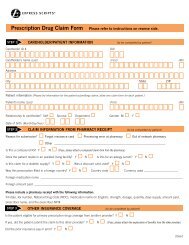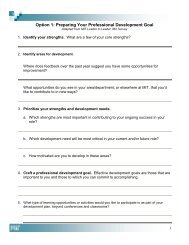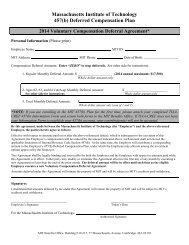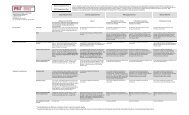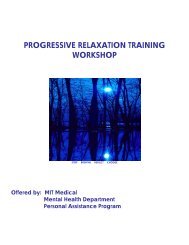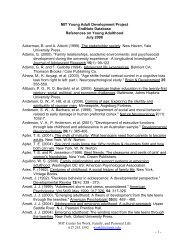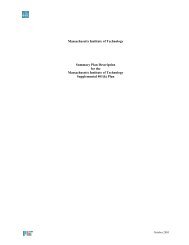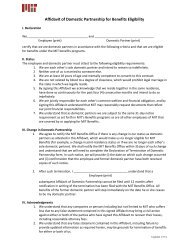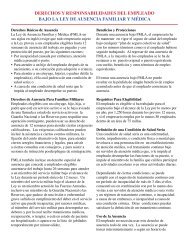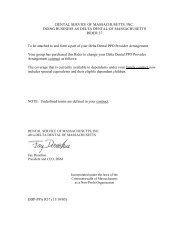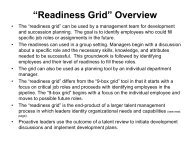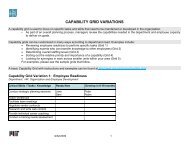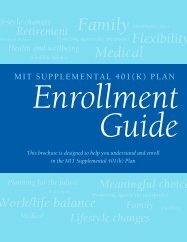Helping parents in developing countries improve adolescents' health
Helping parents in developing countries improve adolescents' health
Helping parents in developing countries improve adolescents' health
You also want an ePaper? Increase the reach of your titles
YUMPU automatically turns print PDFs into web optimized ePapers that Google loves.
• Dissem<strong>in</strong>ate the key research and programme f<strong>in</strong>d<strong>in</strong>gs from this document at the<br />
regional and local levels, us<strong>in</strong>g the document as a work<strong>in</strong>g paper, and allow<strong>in</strong>g for<br />
exchange of ideas, identification of local resources, and application of the<br />
<strong>in</strong>formation to regional circumstances and culture.<br />
Recommendations for programmes<br />
• Focus on parent- as well as adolescent-focused outcomes. In the challeng<strong>in</strong>g<br />
adolescent years, <strong>parents</strong> need support, <strong>in</strong>formation, skills and resources <strong>in</strong> order<br />
to function effectively. Particularly important areas <strong>in</strong>clude: <strong>in</strong>formation about normal<br />
adolescent development, facts about specialized topics like HIV and substance use,<br />
communication skills, <strong>in</strong>formation about local resources, and support for food and<br />
shelter to meet basic needs. Target special parent populations, such as those deal<strong>in</strong>g<br />
with special needs, domestic violence, abuse, drugs, traffick<strong>in</strong>g, or <strong>in</strong>carceration.<br />
• Specify the assumptions beh<strong>in</strong>d work<strong>in</strong>g with <strong>parents</strong> to <strong>in</strong>fluence adolescent<br />
<strong>health</strong>. Th<strong>in</strong>k about how activities with <strong>parents</strong> will result <strong>in</strong> outcomes <strong>in</strong> <strong>parents</strong> and<br />
adolescents. Consider the five parent<strong>in</strong>g roles and how they <strong>in</strong>teract.<br />
• Plan and design <strong>in</strong>terventions carefully. Base them on appropriate theory, research,<br />
knowledge of local culture and customs, and data about local needs. Adapt<br />
theoretical and research knowledge, as well as exist<strong>in</strong>g curricula, to local<br />
circumstances and demographics, <strong>in</strong>clud<strong>in</strong>g cultural traditions and age of <strong>parents</strong><br />
and adolescents. Include pre-test<strong>in</strong>g and evaluation to guide next steps.<br />
• Tap knowledge of local organizations, networks and traditions to reach <strong>parents</strong>.<br />
Use multiple channels of communication. Consider home visits, work<strong>in</strong>g with exist<strong>in</strong>g<br />
<strong>in</strong>stitutions such as schools and faith-based organizations, and special efforts to<br />
reach men. Be creative and strategic <strong>in</strong> offer<strong>in</strong>g <strong>in</strong>centives, such as waiv<strong>in</strong>g school<br />
fees, offer<strong>in</strong>g enterta<strong>in</strong>ment or buy<strong>in</strong>g seeds for farmers.<br />
• Offer a balance of <strong>in</strong>formation, skills, support and resources. Parents generally need<br />
<strong>in</strong>formation about normal adolescent development, and often about specific issues<br />
such as sexual and reproductive <strong>health</strong>, but they also need to know how to use this<br />
<strong>in</strong>formation, where to go for help, and how to balance parent<strong>in</strong>g with the other<br />
demands of their lives.<br />
• Conduct evaluation and share experiences among parent<strong>in</strong>g projects to build a base<br />
of knowledge, to avoid duplication of efforts, and to work towards a common<br />
language, and also on practices to be avoided, tapp<strong>in</strong>g lessons learned from exist<strong>in</strong>g<br />
projects <strong>in</strong> both the developed and develop<strong>in</strong>g world.<br />
30 <strong>Help<strong>in</strong>g</strong> <strong>parents</strong> <strong>in</strong> develop<strong>in</strong>g <strong>countries</strong> <strong>improve</strong> adolescents’ <strong>health</strong>



